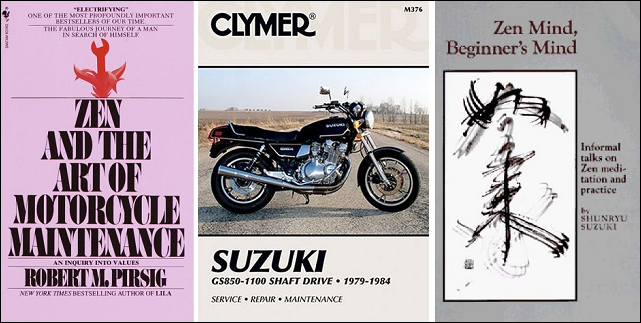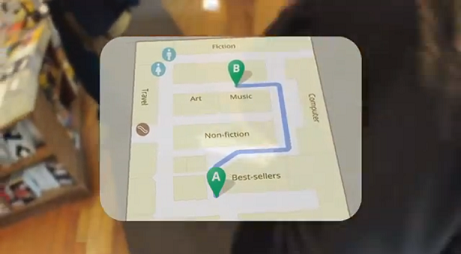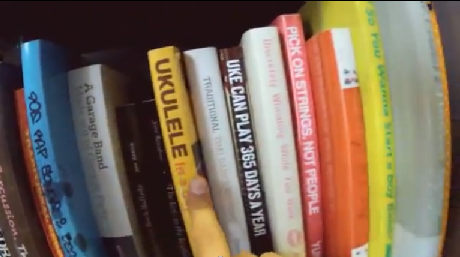One hand Clapping: or is the DNI a Zen Pundit?
[ by Charles Cameron — silos, motorcycles, zen and the DNI ]
.

.
Pam Benson writing at the CNN Security blog may or may not have had anything to do with the title of her post, Spy chief gets Zen, but she’s presumably responsible for her first paragraph:
You usually don’t associate spying with being Zen, but that’s exactly what the nation’s chief intelligence officer did this week at an intelligence gathering in Orlando, Florida.
Here at Zenpundit we’re naturally prone to both Zen and Punditry, so we like that — but to be honest it’s a little over the top. I’m dropping his entire keynote in at the bottom of this post, but for now let’s just say instead that DNI James R Clapper gets bikers.
Okay, maybe we can go a little further, and say he gets Zen and the Art of Motorcycle Maintenance. That’s not quite Zen, but it’s getting closer. Kristin Quinn‘s piece at Trajectory magazine is titled GEOINT 2012: Zen and the Art of Intelligence, which at least pays hommage to Pirsig’s book, and focuses on Pirsig-zen as it applies to Intelligence…
And that’s a direction we can applaud.
Two questions, then: what is zen, and what is intelligence?
**
Zen is, strictly speaking:
A direct transmission outside the Scriptures,
Not dependent on words and letters,
Directly pointing to one’s own mind
Seeing into one’s own nature.
Those words, however, are something of a scripture, so the transmission isn’t in them — it’s one of those things like ceaseless change, always there, never the same, flexible beyond the capacity of words to capture it — as Laozi remarked at the start of the Dao De Jing, in scribbled response to a border guard who demanded that his scriptures be verbal — “dao ke dao, fei chang dao” — two Chinese phrases English can barely translate.
Where do we go from here, then, if we’re accustomed to think in words?
The zen master Shunryu Suzuki Roshi has one answer in the title of his book Zen Mind, Beginner’s Mind.
Zen takes you back to where your mind is fresh and playful, before it got narrow-minded, siloed and rutted. Zen means wide-angle alertness, from a point prior to preference, assumption and prejudice.
Zen takes your thoughts and emotions to the laundry, while you take a shower. They come back lighter and cleaner, and you’re freshened up and ready to go.
**
Let me put that another way, using the analogy of Google glasses. Zen takes you behind words: you can still see them, you can see through them. Very quickly, then, since 5 images are worth 5,000 words and take a lot less time to ingest:
Wearing some futuristic Google Glasses, you would be able to…
Let your glasses know you want to go to the Strand Bookstore (great idea, btw!):
Get yourself a quick map from there to here, visible but superposed on your natural ability to see the street:
Know when you’ve arrived at the bookstore (a) because you can see the books and (b) because your glasses tell you so.
Use a map to navigate to the Music section:
And locate the Ukulele shelf:
When IMO you’d be better off reading about Johann Sebastian Bach — though that’s a matter of personal taste.
With zen, your thoughts and emotions are like head- and heart-mounted displays — you can see them, they can inform your understanding, but you can also see through them, they’re transparent. You can see the world.
**
I’m going to suggest my own definition of intelligence: it’s the ability, given some data point or points, to recognize a variety of salient patterns into which it or they fit, and to create a synthetic understanding of how to move, given that all those salient pattern-fields are in play.
It is seeing in depth, past the surface, where the surface is your assumptions and expectations, and depth is the currents and undercurrents of nuance that your expectations hide.
Let me say that another way: assumptions and preferences — taking sides, being on a team — deprive you of depth. And another: the opposite of surface / superficial thinking is depthful thinking / pattern-recognition.
That, in a nutshell, is why I feel intelligence and zen “go together” even more seamlessly than zen and bikers.
**
Here’s Clapper’s speech:
**
In a future post, I hope to tackle the question of koans — those strange zen riddles, of which the best known may be…
What is the sound of one hand clapping?









October 16th, 2012 at 4:25 pm
Hi Charles,
.
Excellent post. To quote a different Suzuki (DT Suzuki):
.
“Zen does not teach, it points”
.
I have read Shunryu and a lot of the other common texts in the “zen for westerners/beginners” genre and i think you are on the right track. Zen meditation and koan wisdom isn’t about getting or doing but learning how to let go of baggage and lacunae. You can also develop immense powers of concentration by the by but that is not the objective ( and habitually doing things with objectives in mind is one of the things cluttering up “mindfulness”). Zen is the springcleaning for your brain that might make you a better intelligence analyst or doctor or martial artist or whatever, but those things are incidental spillover benefits